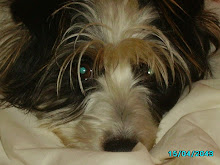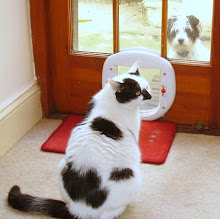The first time it happened I thought I was going to crash the car. I can remember it all so vividly – the feeling that something terrible was going to happen. I was being threatened by an unknown force, and my stomach clenched like a fist. A pain wrenched through my chest and I couldn’t breathe, knew I would choke soon. My hands began to tremble as they clutched the steering wheel. I could feel my heart pounding, and I became hot, cold, flushed then pale. I felt dizzy, sick and wanted to run far away. I was terrified, for I knew I was in terrible danger. I steered the car into a layby and jumped out shaking and gasping for breath.
Afterwards, I sobbed in despair. I was a frightened failure. Was I mentally ill, or physically – terminally – ill? Had I had a heart attack? But I didn’t tell anyone else, for I knew no one would understand. How can anyone who hasn’t experienced a panic attack even guess what it’s like? Thrillers and horror films get the adrenaline going, so you can experience fear from the safety of your own home, but no one really wants to experience panic. There is nothing glorious about it – panic is the black sheep of the fear family.
Driving is something that many of us take for granted. Living in rural South Devon, as I did then, I couldn’t get to work by public transport. Overnight, my car turned from an everyday necessity into a torture chamber, making life very difficult. This panic attack shook my confidence. Everyday trips like driving to work or to the supermarket became a major ordeal, but I was too ashamed to tell anyone about my problem. I went over and over what had happened, reliving the experience in horrifying detail. The fear that it might happen again was paralysing.
For years I struggled with what I soon realised were panic attacks. I learned to live with them, after a fashion, but I felt bound to some strange god who had control over my emotions – in particular, my fear. And yet I had always been a fearless person. I’d travelled alone around America, slept on trains and buses and stayed with strangers, without the slightest thought to my safety. Now, fear had crept into every corner of my life. I was a pathetic, watered down version of myself. A wimp.
The normal stress response to an emergency situation is fight or flight, caused by our involuntary nervous system. When a panic attack occurs, this same response is activated when in fact no threat exists. Knowing this doesn’t make it any less frightening, for it soon becomes the fear of an attack that is so paralysing. Sufferers are usually reluctant to tell people. I was ashamed, embarrassed and frightened by my loss of control. I made excuses and avoided situations that involved driving. Daily I battled with my invisible tormentor, cowering in my car on bad days, muddling along on good days, but always fearful of another attack. Every now and then, another monster pounced, and because you can’t run when driving, I panicked.
Then I met a new man who lived in Cornwall. For our first weekend together, I decided I would defeat my fears and drive down to visit him. I armed myself with supplies – several packets of fags, a bottle of wine for when I arrived and my selection of tapes. I discovered, by chance, that it is impossible to panic while singing or laughing. During a panic attack, the sufferer breathes shallowly, as in an asthma attack, and feels they can’t breathe. When singing or laughing the mind is concentrated on other things, but so is the diaphragm, ensuring that we breathe deeply. As I had no reason to laugh while in the car, I drove the two hours to Cornwall singing, constantly, to my musical collection. I was exhausted by the time I arrived, and had to repeat my repertoire on the return trip. However, I didn’t panic.
The new man was a great success, but the drive was so shattering that I was disinclined to repeat it. From then on I went by train, ashamed that I couldn’t face the drive again, but relieved at not having to.
After about six years, I finally summoned up the courage and determination to see my GP who referred me to the National Health counsellor. The man reminded me of June Whitfield in drag, but was friendly and welcoming, and much more interested in my attempts (at the time) to write my first novel. Our sessions were therefore devoted to what was going on in the publishing world. I enjoyed our literary discussions, but they didn’t further my confidence behind the wheel, and I was no closer to determining why my crises occurred.
I arrived for my appointment one day and noticed the counsellor furtively glancing at his desk. I realised he was reading out advice for me from a photocopied list in front of him, and was torn between dismay at his lack of experience, and a desire to show him up. The incident did not inspire my confidence in his counselling abilities. I didn’t go back after that, but I did practice driving and even managed to drive up to Devon and back – with my husband beside me.
I had been panic free for several years when, completely out of the blue, I had an attack driving home from the supermarket. This temporary blip took a sledgehammer to my fragile confidence. I was back at square one, and for months I agonised over what had gone wrong, and what I should do. I drove short distances, but fearfully, convinced that at any time the panic would overwhelm me. I was little Red Riding Hood and the panics became my wolf.
Again I sought help, this time from a well-known counselling service. The charge was well beyond my means, and when I explained why I had come, the counsellor replied that he had “no experience in Phobias”. He saw people with sexual or marital problems, he said, people who’d been abused, but not with my sort of problem. I should have got up and walked out then, but I clung on for the prescribed hour. I was desperate for a word of help or advice, but walked out feeling depressed, even more alone and helpless.
To my husband, my closest friends and myself, these attacks remained a mystery. Why did they happen? The initial attack was brought on by a very unpleasant situation I was in at the time, where I felt both my personal and work life were being attacked. But having changed jobs three times, moved away from the area and being happily married to a wonderful man, my life had changed. I shouldn’t be having these terror trips – should I?
What I hadn’t realised was that I must relearn the way I thought when driving, so that I no longer felt I was being threatened. Once the sufferer gets used to panicking as a response to a certain situation, it takes time for the body mechanisms to change – to react “normally”.
After talking to my husband and friends, I finally decided to tackle this problem myself. I found several self-help books from the library that made sense. They explained the causes of attacks, and helped me to feel able to tackle my panics, using diversionary techniques, such as breathing exercises.
I feel safer with someone beside me in the car, so my poor husband has clocked up hours of extra mileage while I “do a trial run” somewhere. Last weekend I drove back from Devon, astonishing my husband and myself. The first half hour was hell, but I knew that past Plymouth it would get better, and I decided to carry on. We stopped once, so quickly that it interrupted my husband’s illicit purchase of a packet of fudge.
We arrived home two hours later by which time I was reeling with exhaustion and suppressed nerves. My contact lenses felt sticky, my head was spinning and I felt like crying and laughing at once. But gradually a sense of triumph emerged. I’d beaten the bastards.
I have now realised that there is no quick fix to getting over panic attacks. While some people have bad hair days, I am subject to bad car days. Every good day brings my self esteem up a notch, while every bad day is still another step in the right direction. I am no longer constrained, frightened and ashamed and I look forward to the day when I can drive anywhere without worrying. For that day will come. There is life after panic attacks, and there is plenty of help for those who suffer. We are not alone.
Useful contacts: NO PANIC, Helpline Freephone 0808 808 0545
www.no-panic.co.uk
email: ceo@no-panic.co.uk
“Overcoming Panic” by Derrick Silove and Vijaya Manicavasagar
Published by Robinson Publishing
OpenMind magazine September 2007


















